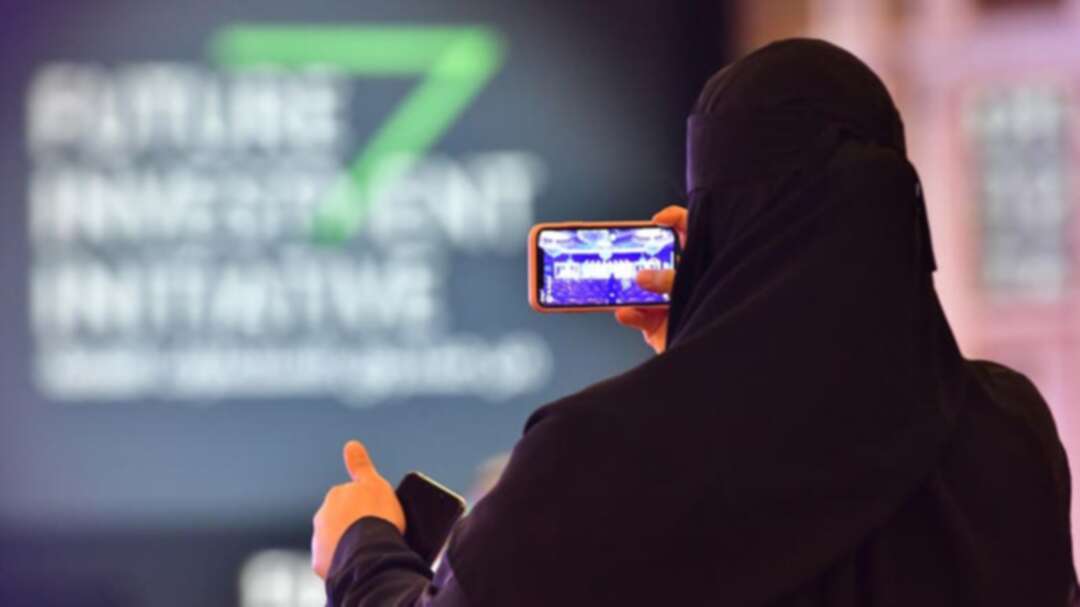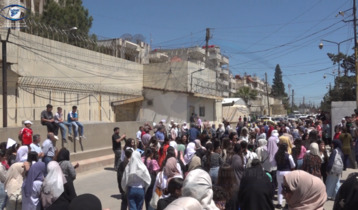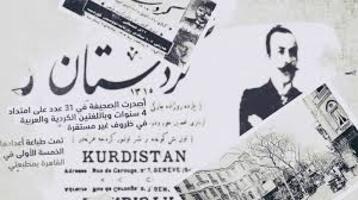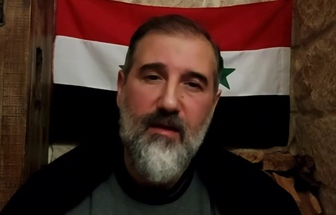-
What you need to know: A timeline of Saudi Arabia’s Vision 2030 reforms

Since Saudi Arabia’s Crown Prince Mohammed bin Salman introduced the ambitious reform plan known as Vision 2030 in 2016, the Kingdom has made strides towards diversifying its economy and reducing its dependence on oil revenues.
“
The wide-ranging reforms, which include a fiscal balance program, have been supported by decisions that improve the overall quality of life in the Kingdom by benefitting residents and helping to attract foreign and domestic investments. Growth has opened up new jobs for Saudi Arabian citizens in key sectors, including through the partial privatization of sectors such as healthcare and housing.
“It guides our aspirations towards a new phase of development – to create a vibrant society in which all citizens can fulfill their dreams, hopes and ambitions to succeed in a thriving economy,” Crown Prince Mohammed said.
Vision 2030 is already having a major impact on business in the Kingdom.
Most recently, Saudi Arabia jumped 30 spots in the World Bank’s Ease of Doing Business 2020 index – the biggest improvement and highest jump worldwide. Reforms under Vision 2030 have led to improved access to credit, strengthened minority investor protections, and facilitated the resolution of insolvency in the Kingdom, according to the World Bank.
“It also made importing and exporting faster by enhancing the electronic trade single window, enabling risk-based inspections, launching an online platform for certification of imported goods, and upgrading infrastructure at Jeddah Port,” the bank added.
These changes are the result of the ongoing economic overhaul, which was also supported in part by the opening of the Saudi Stock Exchange (Tadawul) – the Arab world’s most liquid market – to foreign institutional investors in June 2015.
Equally important is the establishment of the National Transformation Program (NTP), which also falls under the umbrella of Vision 2030. The NTP is dedicated to reforming spending and engaging stakeholders in identifying challenges and creating solutions for the program’s initiatives.
Yet, the NTP is just one of the many institutional developments under Vision 2030. Here is a timeline to keep track of the progress Saudi Arabia has made so far:One of Vision 2030’s key social reforms was the April 2016 decree curbing the powers of the Saudi Committee of Promotion of Virtue and Prevention of Vice, known as the “religious police” by Western media. This not only eased social restrictions for Saudi citizens in public spaces, but also allowed room for economic liberalization in the Kingdom. Since then, Saudi Arabia has held concerts, opera events, and movie screenings across the country.
In March, the country’s labor ministry introduced a new nationalization program, commonly referred to as Saudization, in which businesses across the Kingdom are required to employ a quota of Saudi Arabian citizens across various sectors.
In June, Saudi Arabia’s Capital Market Authority (CMA), the Kingdom’s market regulator, passed a decision to let foreign institutional investors buy exchange-listed debt instruments as part of reforms to draw foreign funds to its market.
During the same month, the Kingdom’s cabinet also approved a tax on undeveloped urban lands. The government also passed a set of regulations allowing foreign investors the right to own 100 percent of retail and wholesale businesses.In October 2017, at the first Future Investment Initiative (FII), a key financial forum that is now held annually in Riyadh, Crown Prince Mohammed pledged to return Saudi Arabia to “moderate Islam.” Prince Mohammed said he would transform the country into a more open society that empowers citizens and welcomes investors.
At the same event, the Crown Prince announced the establishment of Neom – a $500 billion cross-border city on the coastline of the Red Sea which is set to incorporate smart city technologies and function as a tourist destination.
In December, the Saudi Arabian government introduced the Citizen’s Account program – a national cash transfer program aimed to ease austerity measures for low-to middle-income citizens. Payments differ depending on the size and income of each family.
In the same month, the government lifted a 35-year ban on cinemas across the country, a much-awaited decision that has since saw the Kingdom opening its doors to global theater operators, such as VOX Cinemas, as part of Vision 2030’s drive to develop the country’s entertainment sector.
On another front, in June, the Kingdom introduced a “sin tax” on prices of tobacco products and their derivatives by 100 percent.2018 was a big year for Vision 2030, as key social and economic reforms were passed. In January 2018, the Kingdom introduced a five percent value-added tax (VAT) program for the first time, as well as a price hike of up to 127 percent in petrol prices, lifting its decades-long subsidy program on fuel.
During the same month, foreign investors were granted direct access to the Kingdom’s parallel market, known as Nomu, on similar terms to local investors.
Saudi Arabia’s cabinet approved a bankruptcy law in February 2018, as part of its ongoing efforts to boost the ease of doing business, attract foreign investments, and encourage private sector growth.
In March, the Kingdom’s main market Tadawul joined the emerging market index of FTSE Russel, a key global index, data and analytics provider. Later that year, Saudi Arabia won MSCI Emerging Market status in June. The stock market witnessed more than 75 billion riyals of foreign investments since the beginning of 2019 as a result of its inclusion on MSCI and FTSE, Capital Market Authority (CMA) Chairman Mohammad ElKuwaiz told Al Arabiya.
As for the energy sector, Saudi Aramco in July began its purchase of petrochemical giant Saudi Basic Industries Corp. (SABIC), delaying further its plans for an initial public offering (IPO).
In June, Saudi women hit the roads across the Kingdom after a ban on women driving was officially lifted.Reforms continued full steam ahead in 2019.
In May, the Kingdom imposed a new special tax on e-cigarettes and sugary drinks, extending the 2017 tax on tobacco products and soft drinks.
In June, the Kingdom eased a 49-percent foreign ownership limit for strategic investors in shares of listed companies, a move that aimed to attract billions of dollars of foreign funds to its stock market.
As for social reforms, Saudi Arabia issued new laws in August that loosened restrictions on women by allowing them to apply for passports and to travel freely. The legal system previously required women to have a male relative’s consent to obtain a passport or travel abroad.
In the industrial sector, the Ministry of Energy, Industry and Mineral Resources was split into two entities in August. Bandar Alkhorayef was named as the new Minister of Industry and Mineral Resources.
A month later, Prince Abdulaziz bin Salman was named as the Minister of Energy, replacing Khalid al-Falih. Prince Abdulaziz – who is Crown Prince Mohammed bin Salman’s older brother – became the first Saudi Arabian royal to head the ministry.
In a boost for its tourism sector, Saudi Arabia launched e-visas to citizens from 49 countries for the first time in September. As a result, the Kingdom welcomed 24,000 visitors in the 10 days after it issued the visas.
Most recently, Yassir al-Rumayyan, Governor of the Saudi sovereign wealth fund, the Public Investment Fund, replaced al-Falih as the chairman of state oil giant Saudi Aramco. As part of Vision 2030, the company has an upcoming initial public offering (IPO), in which it plans to list about five percent of its shares with a $2 trillion valuation. Saudi Arabia plans to use the funds raised from the IPO to diversify its economy away from oil.
From October 29-31, the Kingdom will be hosting the third annual FII forum in Riyadh, where global leaders, business moguls, and investors will convene to discuss challenges, trends, and opportunities shaping the world economy. The conference comes amid a changing global landscape as emerging markets continue to take up a greater role in the global economy. In 2018, deals signed at the forum reached a total value of $56 billion, and investors and analysts will be watching this year’s forum closely.
source:Reem Abdellatif
You May Also Like
Popular Posts
Caricature
BENEFIT Sponsors BuildHer...
- April 23, 2025
BENEFIT, the Kingdom’s innovator and leading company in Fintech and electronic financial transactions service, has sponsored the BuildHer CityHack 2025 Hackathon, a two-day event spearheaded by the College of Engineering and Technology at the Royal University for Women (RUW).
Aimed at secondary school students, the event brought together a distinguished group of academic professionals and technology experts to mentor and inspire young participants.
More than 100 high school students from across the Kingdom of Bahrain took part in the hackathon, which featured an intensive programme of training workshops and hands-on sessions. These activities were tailored to enhance participants’ critical thinking, collaborative problem-solving, and team-building capabilities, while also encouraging the development of practical and sustainable solutions to contemporary challenges using modern technological tools.
BENEFIT’s Chief Executive Mr. Abdulwahed AlJanahi, commented: “Our support for this educational hackathon reflects our long-term strategic vision to nurture the talents of emerging national youth and empower the next generation of accomplished female leaders in technology. By fostering creativity and innovation, we aim to contribute meaningfully to Bahrain’s comprehensive development goals and align with the aspirations outlined in the Kingdom’s Vision 2030—an ambition in which BENEFIT plays a central role.”
Professor Riyadh Yousif Hamzah, President of the Royal University for Women, commented: “This initiative reflects our commitment to advancing women in STEM fields. We're cultivating a generation of creative, solution-driven female leaders who will drive national development. Our partnership with BENEFIT exemplifies the powerful synergy between academia and private sector in supporting educational innovation.”
Hanan Abdulla Hasan, Senior Manager, PR & Communication at BENEFIT, said: “We are honoured to collaborate with RUW in supporting this remarkable technology-focused event. It highlights our commitment to social responsibility, and our ongoing efforts to enhance the digital and innovation capabilities of young Bahraini women and foster their ability to harness technological tools in the service of a smarter, more sustainable future.”
For his part, Dr. Humam ElAgha, Acting Dean of the College of Engineering and Technology at the University, said: “BuildHer CityHack 2025 embodies our hands-on approach to education. By tackling real-world problems through creative thinking and sustainable solutions, we're preparing women to thrive in the knowledge economy – a cornerstone of the University's vision.”
opinion
Report
ads
Newsletter
Subscribe to our mailing list to get the new updates!






















